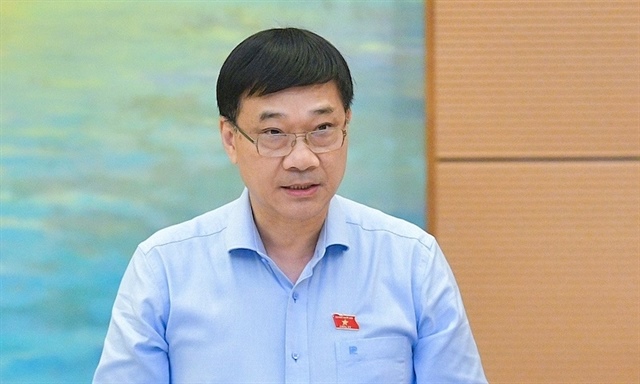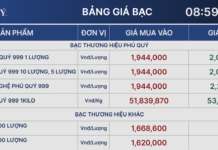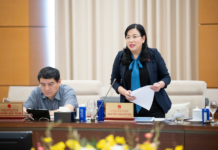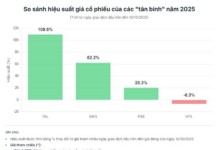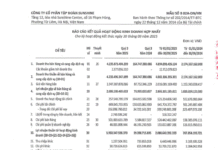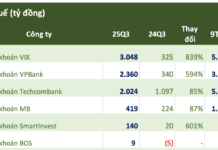On May 13, the National Assembly’s Standing Committee discussed the country’s socio-economic development in 2023 and the first months of 2024.
According to the Government’s report, the real estate market has shown positive signs of recovery, but challenges remain. Mr. Vu Hong Thanh, Chairman of the Economic Committee, acknowledged the persistent difficulties in the property market, arising from cumbersome procedures and processes for developing social housing projects. Real estate businesses continue to face liquidity and cash flow issues.
Condominium prices, including social housing in some localities, have surged due to limited supply and a mismatch in the market’s product structure. According to the Ministry of Construction, condominium prices have increased by approximately 40% compared to five years ago.
Similarly, land prices have also rebounded in major cities, with localized price increases due to speculation, affecting the housing needs of citizens and workers.
“There is even a situation of legal loopholes being exploited for investing and trading social housing,” Mr. Thanh said.
The Economic Committee requested the Government to conduct a comprehensive inspection of social housing development over the past time and take appropriate measures to stabilize the situation.
According to the inspecting agency, land speculation has led to many socio-economic consequences. Firstly, those with genuine needs (for living, production, or business) cannot access land, while speculative land lies idle. Social resources that should be invested in production, business, and job creation are instead tied up in land, increasing business costs and reducing the economy’s competitiveness.

Mr. Vu Hong Thanh, Chairman of the Economic Committee, speaks at the National Assembly Standing Committee meeting on May 13. Photo: National Assembly Media Center |
Meanwhile, those who genuinely need to buy houses or land have to pay a substantial premium to speculators. “The poor are paying more for their housing needs, widening the social inequality gap,” said the Chairman of the Economic Committee.
The disbursement of the VND120,000 billion credit package for this segment has been very slow. So far, only half of the localities have announced 71 projects participating in this program. Commercial banks have provided credit for 15 projects, with a committed amount of about VND7,000 billion. 12 projects have been disbursed with about VND956 billion. This includes VND947 billion for investors of 8 projects and VND9 billion for home buyers in 4 projects.
Vietnam aims to have 1 million social housing units by 2030. However, according to the Ministry of Construction’s report at the end of March, the development of social housing varies across localities. For example, Hanoi and Ho Chi Minh City have a supply that meets less than 20% of the demand. Some provinces have not had any new projects in the last three years, such as Vinh Phuc, Ninh Binh, Nam Dinh, and Quang Ngai.
Ho Chi Minh City plans to complete 35,000 social housing units by 2025, but the number of completed projects is still very limited. In a dialogue with Ho Chi Minh City leaders last weekend, workers shared their difficulties in accessing social housing due to limited supply.
Mr. Phan Van Mai, Chairman of Ho Chi Minh City People’s Committee, stated that the city would first focus on achieving the target assigned by the Prime Minister of 26,500 units. The project locations have been identified.
Hoai Thu
